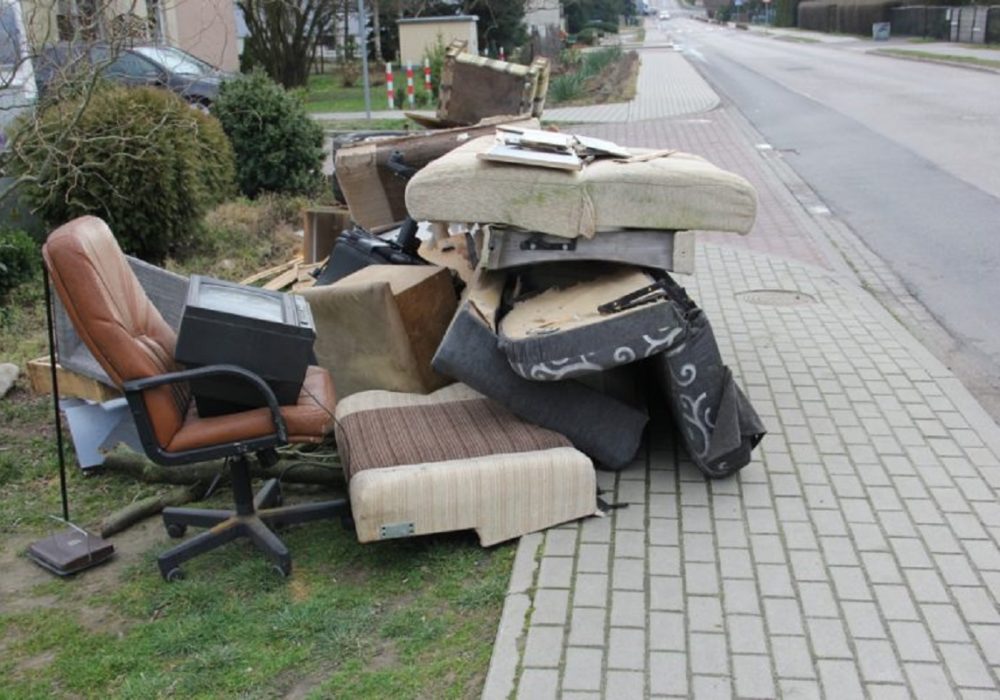
LAs and HWRC’s given insufficient time to adapt to new POP policies
Early January 2023 saw some councils temporally stop accepting sofas and other seating that contains persistent organic pollutants (POPs).
This came in the wake of the Environment Agency writing to local authorities in August warning that waste sofas and all other waste upholstered domestic seating containing POPs must be incinerated and not landfilled or reused.
August’s POPs guidance was published after an investigation found large levels of POPs in seating textiles and foams.
The Agency set out its enforcement policy last month in the form of RPS documents and guidance pages:
POPs remain intact in the environment for long periods, and, if not disposed of properly, become widely distributed geographically.
However, there are some significant implications for waste management, the environment and the reuse market:
- Handling waste POP containing items – To prevent POP contamination of other waste streams, Environment Agency regulatory position statements (RPSs) create further complexity in storing, segregating, shredding and burning POP containing materials in energy from waste (EfW) incinerators.
- Strict reuse regulations – The Environment Agency also issued guidance on the reuse of soft furnishings containing POPs, which governs the circumstances under which items may be reused, with which all waste management operators will need to comply.
- A hit to the charity sector – In what will seem like a an unfair increase in costs, the Charity Retail Association says charity shops face a potentially significant increase of as much as 200% in the cost of disposing of items of upholstered furniture due to these new POP rules.
- Increase in fly-tipped soft furnishings – With some HWRCs (household waste recycling centres) temporarily unable to accept soft furnishings, there is likely to be a spike in the fly tipping of sofas, seating and similar items.
What’s behind the temporary halt in accepting POP containing items?
It seems that there has been a fair degree of uncertainty about the new POP rules. The Environment Agency said in November that inspections will not start until August, but RPS documentation that set out enforcement procedures mentioned January 2023.
The implementation was sudden and inconsistent with indications already given by Defra and the Environment Agency to LAs. With insufficient time to make the necessary changes to handling POP containing waste at some HWRCs, the only available course of action was to temporarily cease accepting soft furnishings.
Another factor governing the decision of some councils to call a temporary halt to accepting POP containing materials is the availability of suitable EfW incinerator capacity nearby. To safely burn materials containing persistent organic compounds (POPs) requires a combination of advanced technology and strict operating procedures. High temperatures, emissions control, primary and secondary combustion chambers, as well as ash treatment are all key elements required to ensure environmental safety.
Circular economy likely to be a little less round
However, just fully combusting and cleaning up the residues of POP material combustion isn’t as straightforward as it might seem. According to Tolvik Consulting’s May 2022 report, UK Energy from Waste Statistics – 2021, there 70 incineration facilities operational or in commissioning or under construction with a total annual capacity of 21.67 million tonnes. But this wasn’t enough, or it was unevenly distributed to allow for the Environment Agency timeframe to be met.
The simple answer might be to build more capacity in appropriate places to meet the needs of LAs. However, amongst other things, activist groups such as Greenpeace and UKWIN have noted geodemographic biases in the locations of facilities and the large amount of CO2 that is released from EfW incineration. They are actively campaigning to prevent further expansion of incineration capacity by raising question marks over the logic of incinerating waste. In short, it seems there are no easy answers, and with current policies around POPs and soft furnishing disposal and reuse, the circular economy is likely to be a little less round.
More efficient waste management solutions from Whitespace
The complexity of cleaning up and preventing further damage to the environment through waste management poses enormous challenges. Technology is at the forefront of helping LAs and waste management organisations to tackle the problems.
Whitespace is the UK’s partner of choice for developing technology solutions that address the logistical problems of waste management. To find out more about Whitespace Municipal Waste Management solutions, please get in touch by calling us on +44 (0)1483 231 650 or emailing us at info@whitespacews.com.
